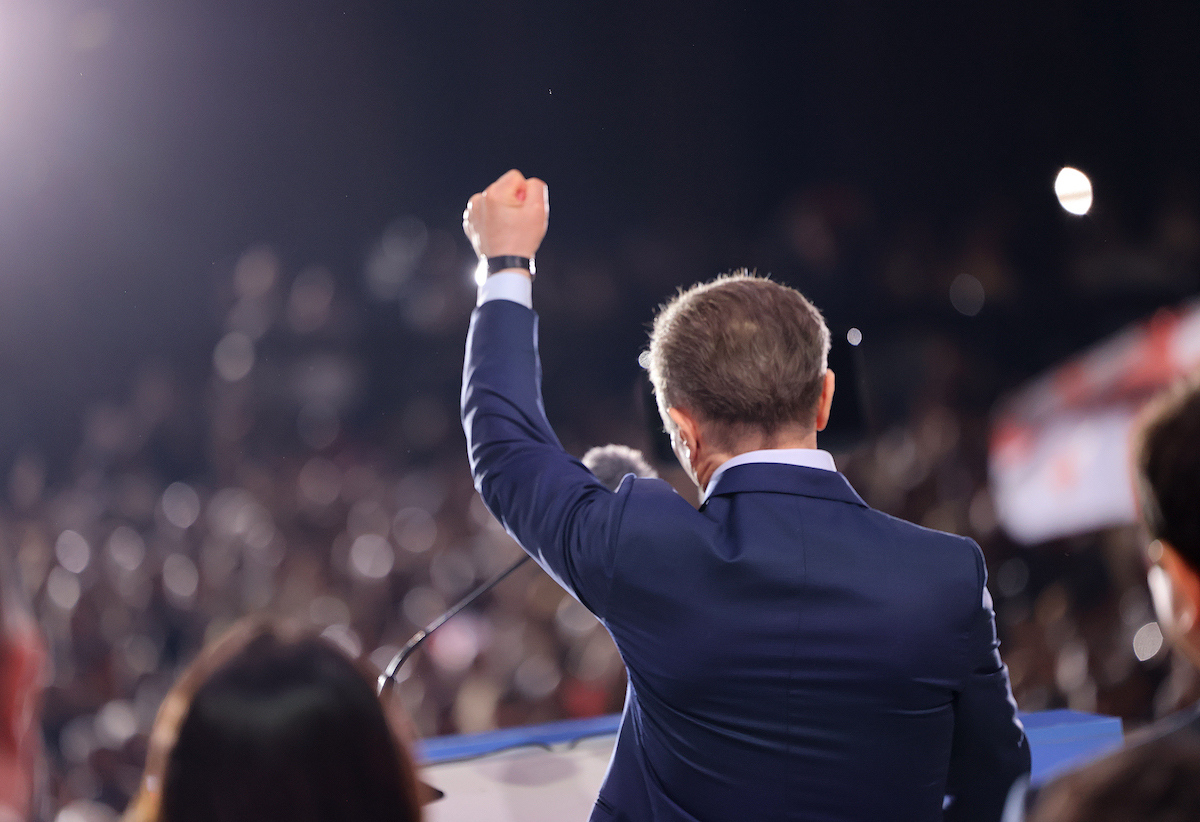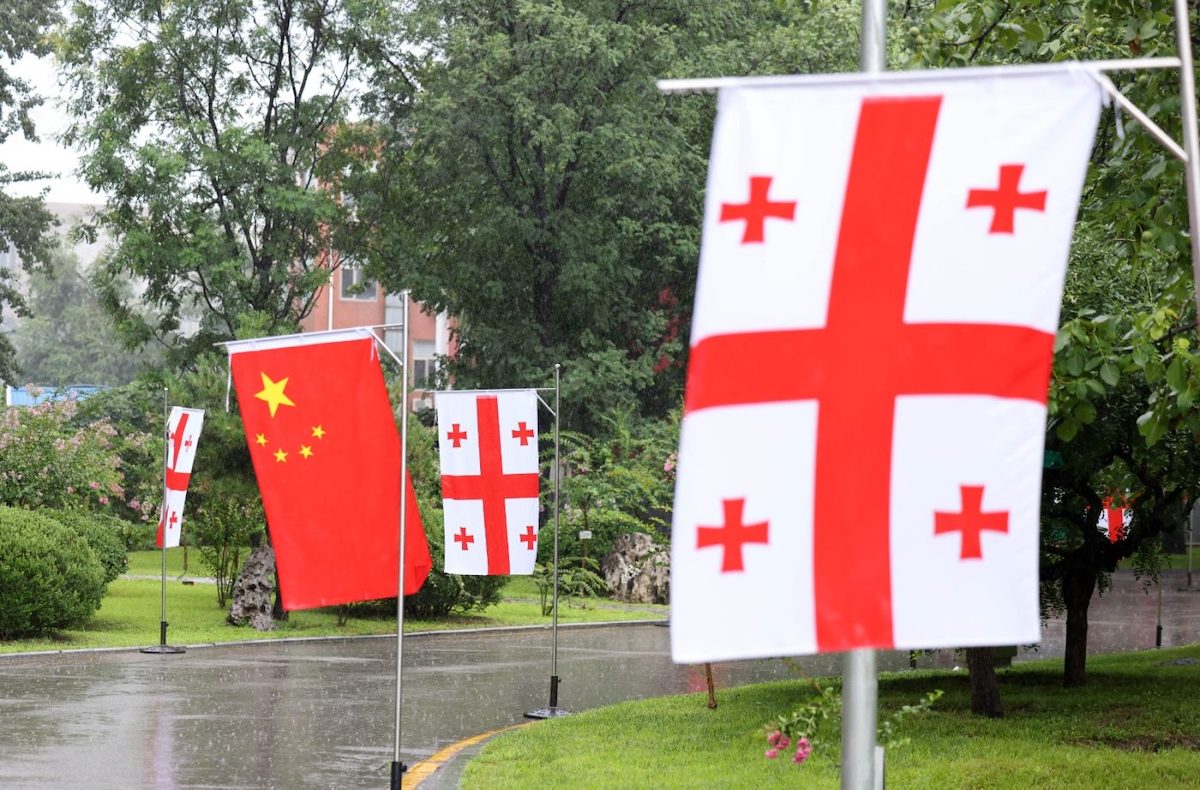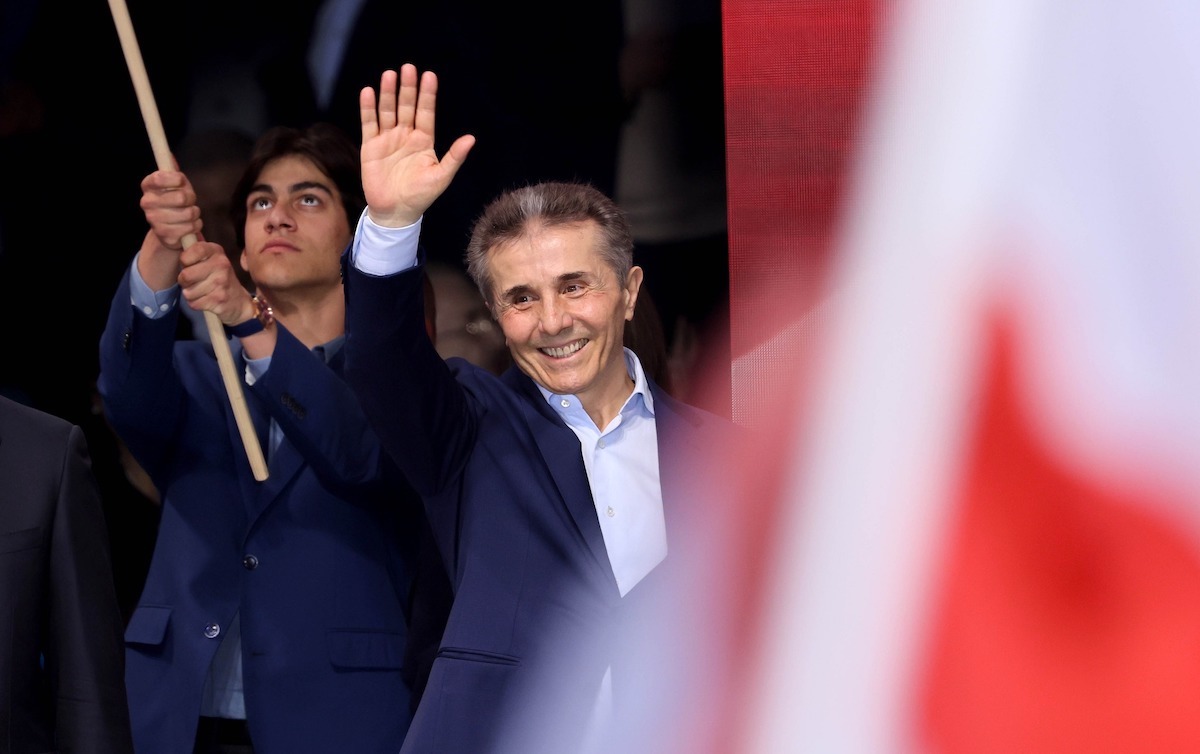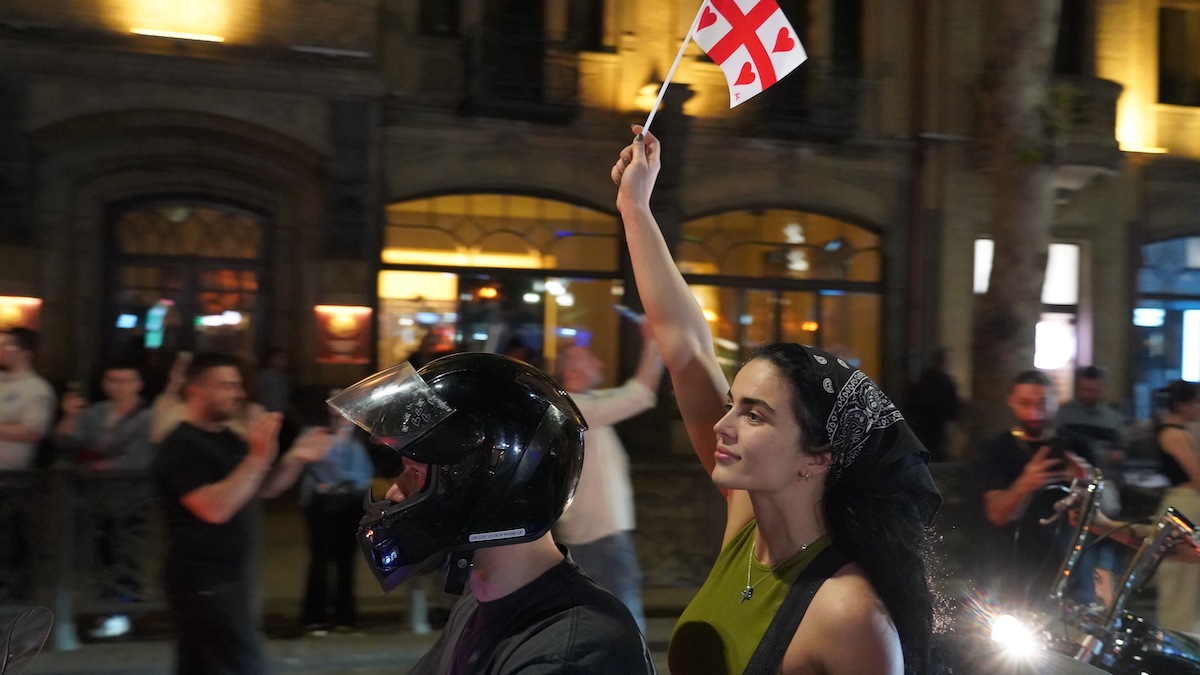Four months before elections, Georgia's opposition is still unprepared. Do they have enough time?
Opposition and elections in Georgia
Less than four months remain until the 2024 parliamentary elections. These elections will essentially be equivalent to a referendum, where voters must decide what kind of Georgia they want and which path the country will take.
For political analysts and others, it is already clear that if the current government does not change, Georgia will finally separate from the Western world and find itself in complete isolation.
There is much evidence to support this.
It has been officially announced that Georgia’s process of joining the European Union has been suspended. The European Council made this decision on June 27.
- In what scenario would the ruling party in Georgia lose the election? Opinion
- Georgia’s “foreign agents” law is now a reality. When will it take effect and who will it impact?
For the first time in the history of independent Georgia, we have a government under sanctions. The United States has imposed visa restrictions on high-ranking officials of the ruling “Georgian Dream” party due to the adoption of the “foreign agents” law and the undermining of democracy.
Additionally, it was announced earlier this week that the U.S. has indefinitely postponed joint military exercises with Georgia, which have been held since 2016. According to Michael Carpenter, Senior Director for European Affairs at the U.S. National Security Council, all existing programs with Georgia are under review.
Moreover, we already know that the European Union is reducing its aid to the Georgian government. The first casualty of this decision is the country’s defense sector. The EU has frozen €30 million in aid, which was planned to be transferred from the European Peace Facility (EPF) to the Georgian Defense Forces. If the situation further deteriorates, other measures will be considered, said EU Ambassador to Georgia Paweł Herczyński.
Germany has also decided to reassess its relations with Georgia.
Despite this context, the election fever in Georgia has not yet begun.
The country first experienced euphoria from the March protests, then it was swept up in football excitement. Many experts fear that now the summer heat and August holidays will further distract attention, and the elections will begin in this environment.
All of this plays into the hands of “Georgian Dream,” some experts say, and it’s true. Meanwhile, the Dream government has passed the “Russian law” [the “foreign agents” law], which threatens to destroy the civil sector and media, plans to pass a law restricting LGBTQ rights, has made changes to the electoral code, imprisoned several activists who opposed the “Russian law,” and more.
At the same time, the election campaign has unofficially already started. The authorities announced a salary increase of 500 lari [about $185] or more for teachers. They are also planning to pass an amnesty law before the elections and have started implementing social programs earlier this year.
Preparation for the elections and opposition configurations
The 2024 parliamentary elections will be held for the first time under a proportional system. Only parties that pass the five percent threshold will enter parliament. The seats of the losing parties will be distributed among the winners.
Therefore, the opposition’s task is not to lose a single opposition-leaning voter. The opposition knows it needs to find ways to cooperate with each other in these elections.
Experts have discussed two options for uniting the pro-Western opposition – a single list or several large opposition alliances.
By early July, it became clear that there would be no unified list. Some opposition parties did not want to unite around the “United National Movement” (UNM). They believed it would play into the hands of “Georgian Dream” propaganda, suggesting that “everyone is with the National Movement.”
Therefore, all attention shifted to opposition configurations. These should be arranged so that voters have choices other than “Georgian Dream” and “Nationals,” experts believe.
Political analyst Gia Khukhashvili roughly divides the opposition voter into three parts: loyal to the “National Movement,” the “anti-National” voter, and the so-called migrating voter, who makes an emotional choice, then becomes disillusioned and seeks an alternative.
“Accordingly, the opposition needs configurations that cover all three electoral segments. Three centers are needed,” says Gia Khukhashvili.
At this moment, two centers have already been created on the opposition flank.
The “National Movement” and “Strategy Aghmashenebeli” have founded a new platform, “Unity for the Salvation of Georgia.” These parties, which recently had an alliance, will participate in the elections under number five with several new faces. (The number five has been the election number of the “United National Movement” for many years.)
The second opposition center was created by the parties “Droa,” “Girchi – More Freedom,” and “Ahali.” Another opposition party, “Lelo,” considered joining them. However, it became known that there were “disagreements on some issues” between the sides. Both the second opposition center and “Lelo” say the resources for negotiations with each other are not exhausted. But we do not yet know if their cooperation will take place.
Many expected the unification of four parties, leading to many questions.
Some experts are puzzled, if these parties agree that the parliamentary elections are equivalent to a referendum, what exactly was the issue that prevented an agreement.
“It was expected that the merger of ‘Lelo’ and ‘Ahali’ would create a new serious center. This did not work out. It is assumed that the reason is a struggle for ego and primacy, rather than any substantial issue. This was a very serious failure and disappointment for the voters,” says political scientist Gia Nodia.
Additionally, questions have arisen in society and among experts about whether the influence of the “National Movement” and the second opposition center is affected by the former Minister of Defense, Davit Kezerashvili.
Political analyst Gia Khukhashvili suggests that the merger of “Lelo” with the second center would address these issues: “Lelo” would soften the perception that this center is associated with the “National Movement.”
Irakli Melashvili, a political analyst, raises these questions, excluding “European Georgia” from the alliance:
“This clearly indicates that Kezerashvili’s influence in this union exceeds its size. It appears that today he is one of the main backstage directors of the processes taking place under the wing of the ‘National Movement,’ a proprietor who has the ability to ‘steer’ the situation through financial resources,” he says.
According to Melashvili, these alliances should have no trouble gathering 25-30 percent of the voter base or slightly more, but their ability to change power is not guaranteed:
“To defeat ‘Georgian Dream,’ it will be crucial which configuration the parties emphasizing voters who do not want to remain under the control of ‘Georgian Dream’ due to its overtly anti-Western policies, but also are not attracted by the prospect of Saakashvili and his circle returning,” he says.
Since the merger of “Lelo” and “Akhalis” has not yet occurred, some experts consider the merger of “Lelo” and the party of former prime minister Giorgi Gakharia as a potential third opposition center. Additionally, small parties that may struggle to overcome the electoral threshold independently will be lost. For instance, Irakli Melashvili mentions parties like “For the People” led by Ana Dolidze or “Citizens” led by Aleko Elisashvili.
“If these forces, primarily their leaders, can tame their egos and reach an agreement (the main obstacle here will be agreeing on the candidate for prime minister), then for the first time since 2012, there is a very real chance that the majority of opposition votes will not go to the ‘National Movement’ and its associated parties,” says Irakli Melashvili.
Giorgi Nodia calls the union of such parties a coalition of “ideal moderates” — forces not tied to the “National Movement” by their history.
However, all experts agree that having more than three centers means diluting the opposition votes and carries high risks.
These risks already exist, as it is known that the “European Georgia” party will participate independently in the elections at this point.
Does the opposition still have time to consider negotiations and configurations?
“It’s better to [start preparing] sooner rather than later, but it’s not too late yet. We saw that France suddenly announced elections, and within a month, it was all over,” says Giorgi Nodia, responding to whether the opposition can afford the luxury of so many negotiations and such a time-consuming process.
According to Gia Khukhashvili, “it’s not too late yet, but time is short.”
The opposition considers time a crucial factor in winning over undecided voters and working in the regions.
“Regions are neglected. No one is working with them. People there watch ‘Imedi’, and we need to come and talk to them. There needs to be activity in the regions from the opposition,” says Gia Khukhashvili.
Motivating voters to come to the polls is a challenging task in these elections, as internal opposition research conducted by the Institute of Social Studies and Analysis (ISSA) in June, commissioned by the opposition, has shown. The results of this study have not been made public, but opposition parties have attempted to interpret its findings.
However, the main takeaway from this research is that pro-Western opposition parties are garnering more votes than “Georgian Dream.” Furthermore, none of the pro-Western opposition parties seeking to unite are falling below the electoral threshold.






















